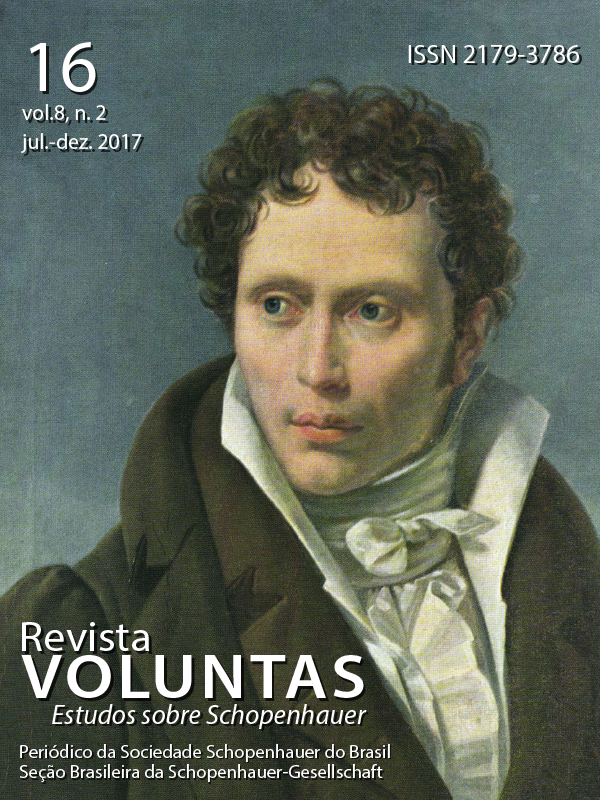The philosophy as decipherment of the enigma of the world
DOI:
https://doi.org/10.5902/2179378633579Keywords:
Philosophy, Immanent Metaphysics, Suffering, SchopenhauerAbstract
For Schopenhauer, philosophy consists of a conceptual reflection that allows us to understand the enigma posed by the inevitable existence of suffering and death, through a metaphysics that he qualifies as immanent. Because it is immanent, its metaphysics should not be understood as an explanation obtained through a knowledge situated outside or beyond experience, for it consists in the interpretation that considers the facts of the inner and outer experience available to all and the relationships of these facts with the world, through which we can understand the deepest and most hidden connection between them. Consequently his metaphysics does not draw conclusions about whatever is beyond all possibility of experience, and for that reason, it keeps hanging all questions to which answers cannot be assimilated through the forms and functions of our intellect.
Downloads
References
KOSSLER, M. Die Philosophie Schopenhauers als Erfahrung des Charakters. In: Schopenhauer im Komtext. Deutsch-polnisches Schopenhauer-Symposium 2000 (Hrsg. D. Birnbacher/A. Lorenz/L. Miodonski). Würzburg: Königshausen& Neumann, 2000.
KOSSLER, M. Sobre o papel do discernimento [Besonnenheit] na estética de Arthur Schopenhauer. In: Eduardo Ribeiro da Fonseca, Fernando Costa Mattos, Flamarion Caldeira Ramos [et al.] (Org.). Dogmatismo e antidogmatismo: Filosofia Crítica, Vontade e Liberdade. Uma homenagem a Maria Lúcia Mello Oliveira e Cacciola. Curitiba: Editora UFPR, 2015.
SCHOPENHAUER, A. O mundo como vontade e representação. Tomo II: Complementos. Trad. Eduardo Ribeiro da Fonseca. Curitiba: Editora UFPR, 2014.
SCHOPENHAUER, A. Sobre o fundamento da moral. Trad. Maria Lúcia Cacciola. São Paulo: Martins Fontes, 1995.
Downloads
Published
How to Cite
Issue
Section
License
The submission of original manuscripts to this journal implies the transference, by the authors, of the copyrights for printed and digital publication. The copyrights of a published manuscript belong ultimately to the author, and only the copyright for its first publication is reserved to the journal. Authors may only use the same results in other publications explicitly indicating this journal as the medium of the original publication.
Licence
Attribution-NonCommercial-ShareAlike 4.0 International (CC BY-NC-SA 4.0) - This license lets others remix, tweak, and build upon your work non-commercially, as long as they credit you and license their new creations under the identical terms.






